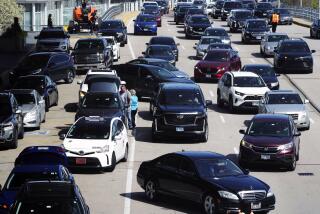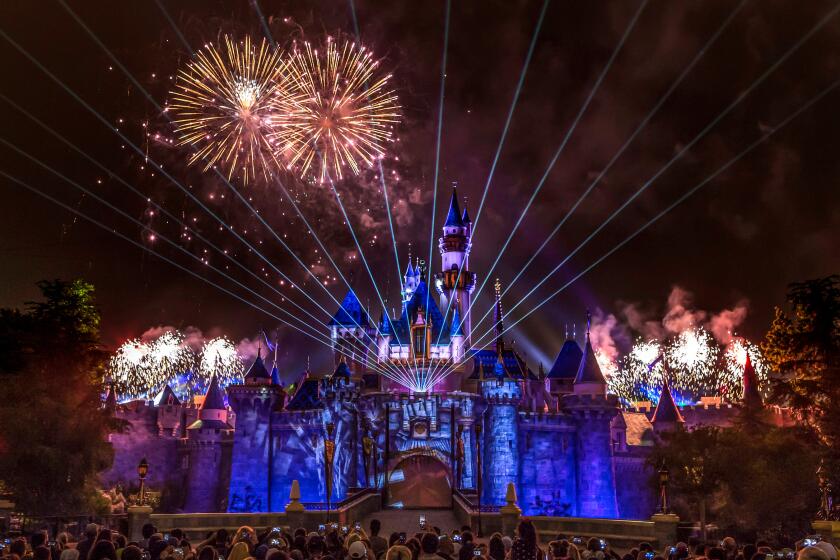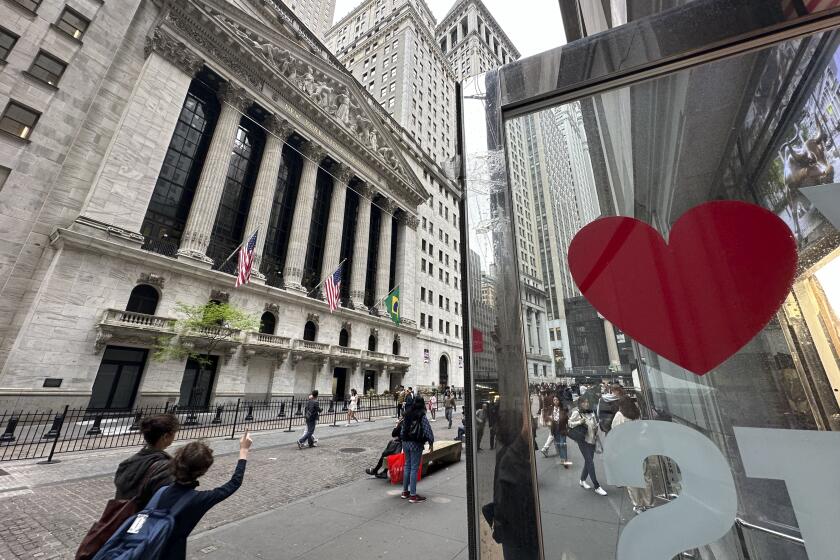Japanese Seek Respite From Heat of ‘Rising Sun’ : Business: In an El Camino College forum with civic leaders and economists, Far East executives say that the image of being uncaring is undeserved. The root cause, they say, is their more subtle way of doing things.
In the movie “Rising Sun,” a Japanese company operating in Los Angeles was portrayed as a silent, mysterious giant with few ties to the community.
But Tokyo executives say that image is inaccurate, and recently they have labored to erase the stereotype, which they say is a legacy of the 1980s when Japanese companies heavily invested in Southern California real estate and Fortune 500 companies.
Japanese corporate executives joined civic leaders and economists last week at a forum at El Camino College in Torrance to examine the sometimes tense relations between Japanese firms and the American communities in which they operate.
The event was sponsored by the International Business Communications Council, a Japanese-based group seeking to stem Japan-bashing abroad.
While Japanese executives used the forum to lament their “Rising Sun” image and to point out their record of community contributions, Los Angeles area civic leaders and business experts said attention must be paid to how the money is spent, not how much is donated.
Executives from American Honda Motor Co. Inc. in Torrance and Mitsubishi Electric Corp. in Cypress outlined an array of philanthropic efforts.
Honda officials assisted in the cleanup after last year’s riots in Los Angeles, and the company has organized a golf tournament, the South Bay Classic, which recently raised $100,000 for drug education programs.
In addition, after the riots “we had an executive vice president from Japan--he was in his overalls--in the dump, picking up garbage,” said Willie Tokishi, American Honda’s vice president of corporate community relations.
He also pointed to American Honda’s contributions to the Torrance Unified School District, including money and supplies to modernize math and science programs.
Mitsubishi has been active in supporting job training classes in Orange County, said Takashi Kiuchi, director of the board of Mitsubishi Electric Corp. in Cypress.
Altogether, about 140 Japanese companies in Southern California donated $160 million last year to charity groups and community organizations, according to Koichi Haraguchi, the Japanese consul general in Los Angeles.
The problem, Japanese officials say, has been that their efforts go largely unnoticed.
“In my 30 years with American Honda, this is the first time that I have been asked to tell people what we have done in the community,” Tokishi said.
If Japanese contributions to American communities go unnoticed, it may be partly due to the low-key manner in which the Japanese work, he said.
“The quietness and subtleness has to with our culture,” Tokishi said. “We will start to do our best to communicate what we are doing, but in a subtle, not commercial way.”
Said Kiuchi: “Maybe this (forum) will be a wake-up call.”
Despite the efforts of the Japanese companies, some community activists say donating money and joining civic groups are often the exception to the rule. Their criticism was not limited to Japanese companies, but included many foreign firms.
“It’s not so much how much a company gives, it is how it is spent,” said Linda Wong, co-chair of RLA, formerly Rebuild L.A., the nonprofit group formed to revitalize inner-city areas after the riots.
Wong said foreign corporations should seek to invest in job training programs and other activities that help impoverished residents and are more likely to benefit the community than a simple donation.
For example, she said, Toyota has contributed to a job training program that targets inner-city residents.
“The question is: Do Japanese multinational corporations intend to make a long-term commitment to the community?” Wong said.
Other panelists argued that problems often can be tied to the rigid Japanese corporate structure. Executives are rotated every few years from country to country, and that “prevents them from developing good community relationships,” said James Impoco, national business correspondent for U.S. News and World Report and the magazine’s former Tokyo bureau chief.
Japanese companies, said economist Joel Kotkin, need to become more open about their business practices and culture, so the community does not view them as mysterious, like the corporation in “Rising Sun.”
“Then people will hold you as an individual,” he said.






